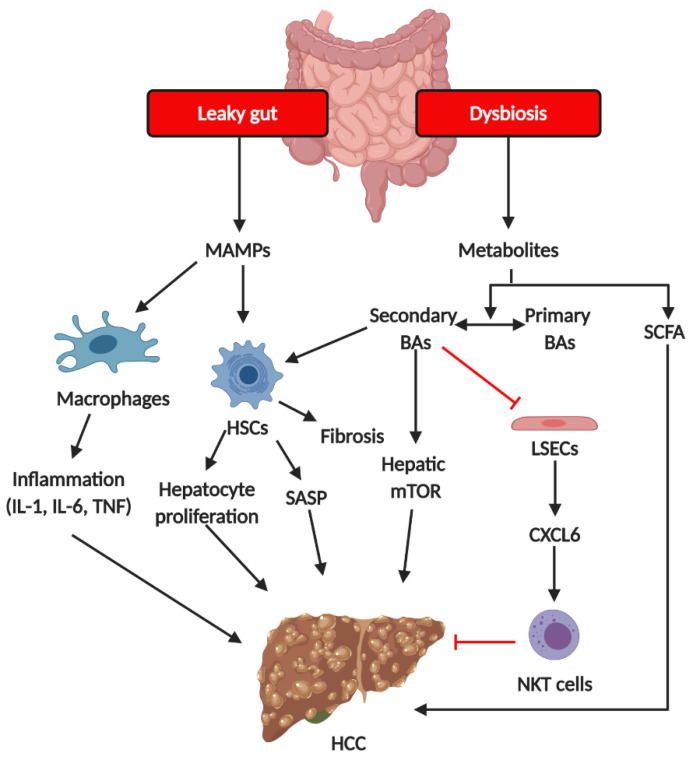Figure 5.
The mechanism of gut microbiota on the pathogenesis of HCC. Increased hepatic exposure to microbiota-derived metabolites and MAMPs results from dysbiosis and a leaky gut. Changes in BA pool (the ratio of primary BAs and secondary BAs) alter LSEC- and CXCL16-dependent NKT recruitment as well as HSC SASP. MAMPs induce the activation of macrophages, resulting in the production of pro-inflammatory cytokines including IL-1, IL-6, and TNF. Increased pro-inflammatory cytokines further contribute hepatic inflammation, which may also promote HCC development. MAMPs, microbiota-associated molecular patterns; HSCs, hepatic stellate cells; SASP, senescence-associated secretory phenotype; BAs, bile acids; LSECs, liver sinusoidal cells; SCFAs, short chain fatty acids; NKT cells, nature killer cells.

